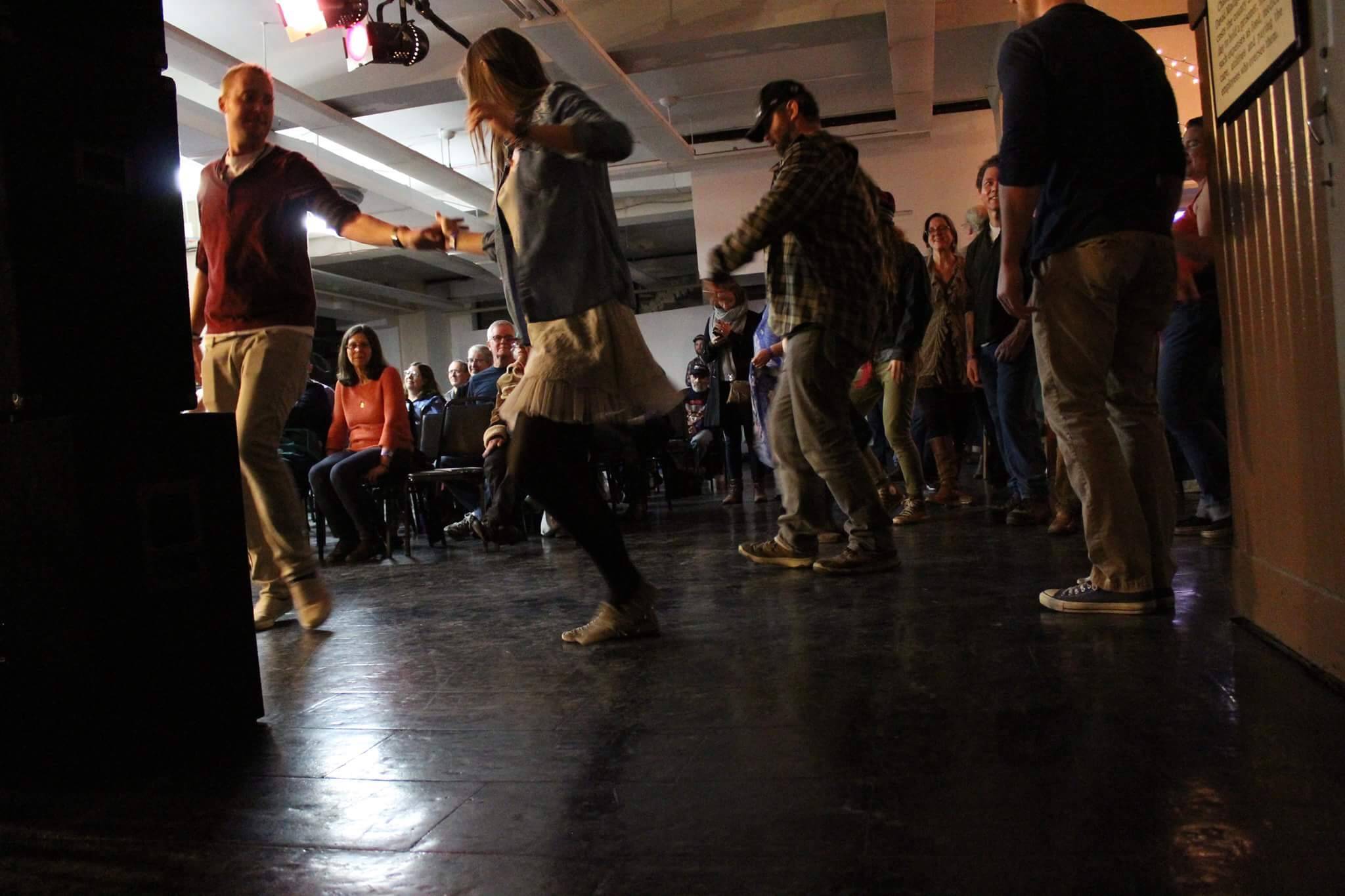The C-U Folk and Roots Festival kicked off it’s 9th year on Thursday November 2nd. On Friday I was able to catch a few shows the event had to offer.
One of the festival’s missions — as stated on its official website, which I hastily pulled up many times on my phone for information — is to promote a feeling of community.
This is literary foreshadowing, so keep this in mind. Trust me, it’ll pay off in the end.
The Rose Bowl is an intimate space — I’m sure it can be a more roomy and open space when it needs to be, but on this night there was little room to be had – the festival had begun and the people had shown up, ready.
The intimacy of the tavern was increased by the shoulder to shoulder nature of its occupancy that night, but everyone seemed pretty calm; the festival was in swing, the music was happening, no one really seemed bothered, drinks were being ordered, conversations were being had, and of course music.
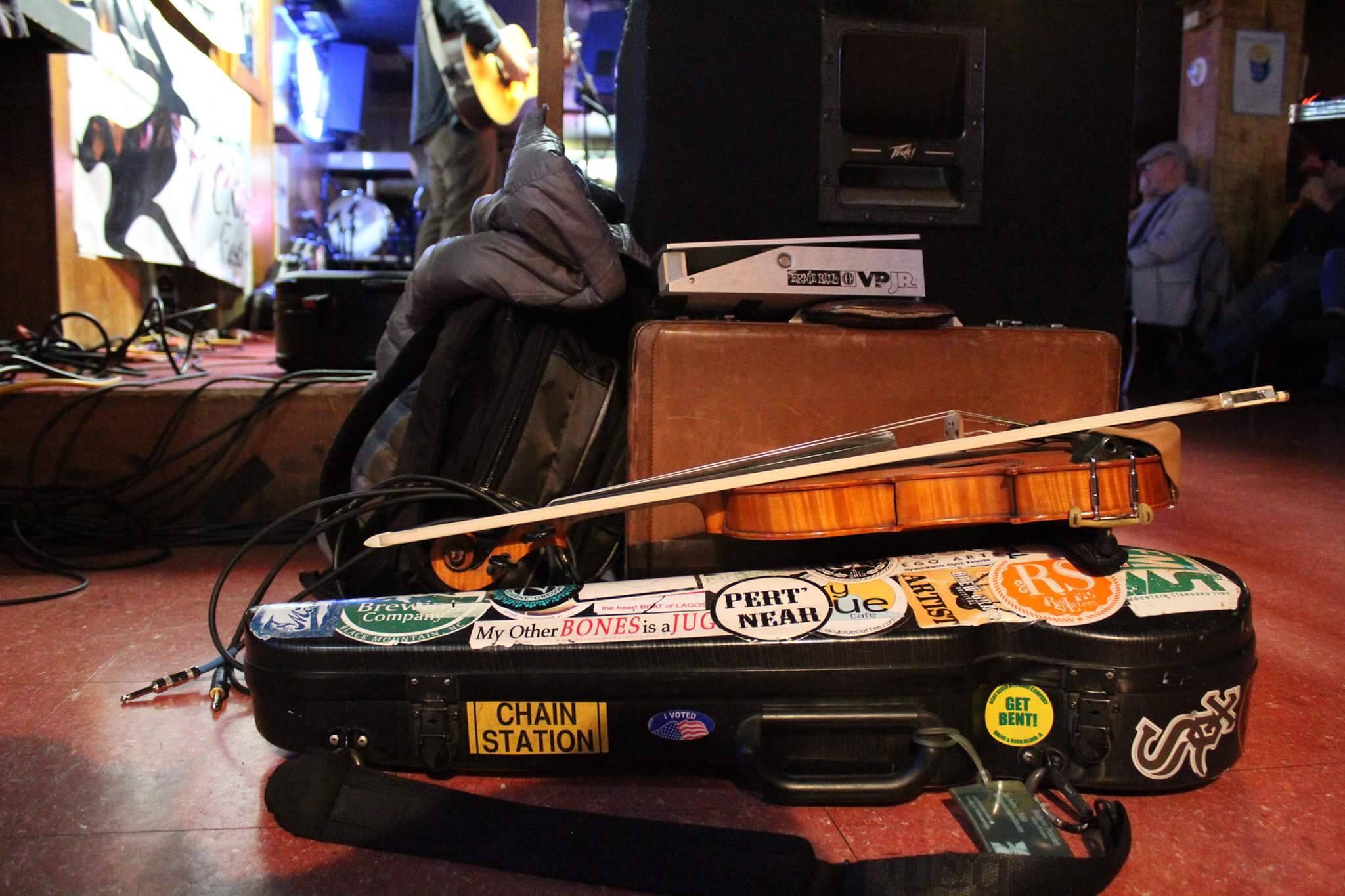
Chicago Farmer took the stage. The conversational aspect of the show was warming — folk music is the music of storytelling and this show did not lack for stories or history. Listening to Chicago Farmer’s set gave me enough information to paint an adequate picture of the man (at least enough to start a casual, if not somewhat awkward, conversation with him). The singer is from Delaven, Illinois, a small town of roughly 1,800 people — his parents ran the town’s one and only head shop, and they also sold water beds. Is this information 100% factual? I’m not sure, but that’s kind of the point. Part of the charm lies in the mystique that is created in the songs. I actually know very little about the life of Bob Dylan — though I’ve listened to his music for many years, but from some of his songs I can note that he was born in a small town, traveled the back roads of America until he found his way to New York where he befriended Woody Guthrie and gained an adept skill for predicting the power of rainfalls.
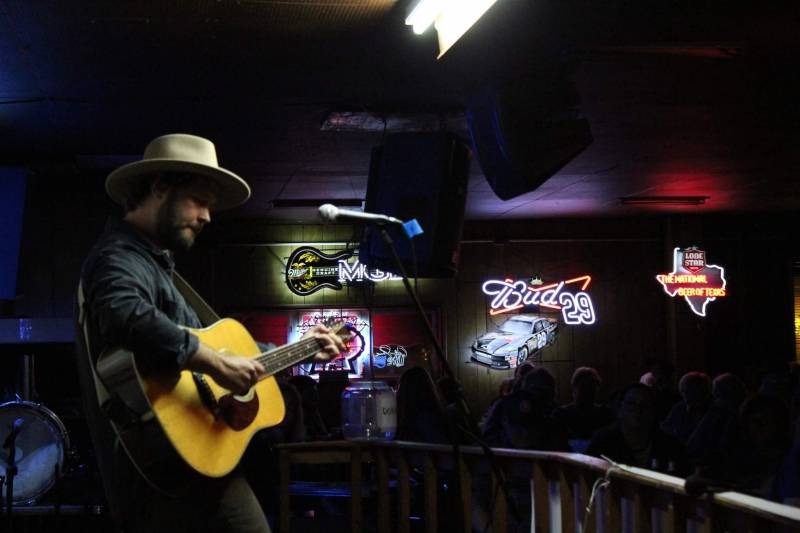
The first song of the night “13 Dollar Beer” had the crowd happily laughing and talking back. The show was interwoven with stories — before, after, and sometimes in the middle of each song. Call outs and references to Champaign and the Rose Bowl were worked into the lyrics and the crowd welcomed the additions with hoots and cheers.
Near the end of the show Chicago Farmer played a cover of the late Tom Petty’s “I Won’t Back Down” — which the audience welcomed with a sing along, smiles on their faces, and beer bottles lifted into the air.
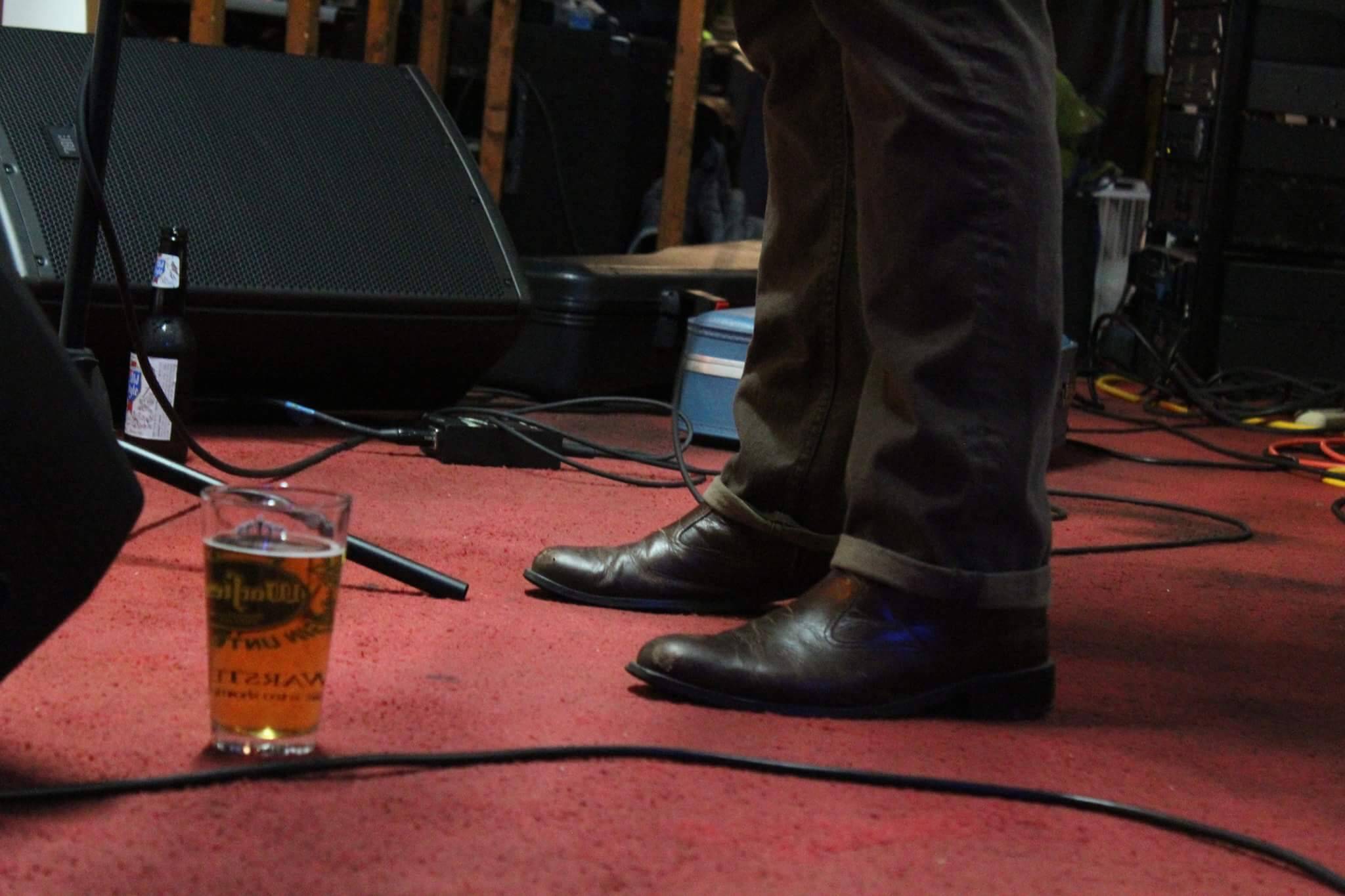
I only had to travel across the street a bit to hit my next stop in the back bar at Pizza M where singer Rebekah Songer was set to perform. The bar at Pizza M was a very different experience from the Rose Bowl — more open and relaxed. The audience sat casually drinking wine, chatting, and eating handfuls of pizza. I was distracted by the fantastic, almost panoramic artwork that tattoo the walls of the room, stretching around each corner displaying a scene filled with mutant creatures and laser guns battles. Songer played, as she described it, “slow jams for the next 45 minutes” letting the audience sit back and relax.
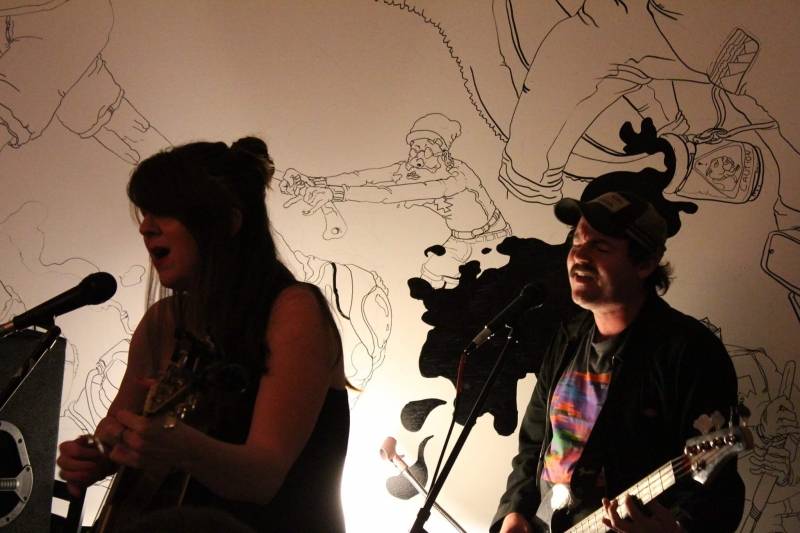
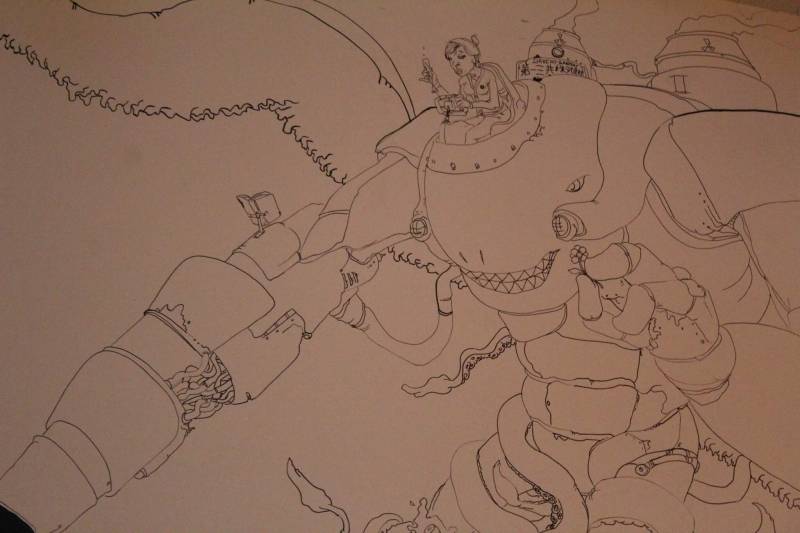
I left the show early — cautiously moved my car, because even though I’ve lived in this area for almost five years now I still don’t fully understand some of the parking rules — and finished my night at the Independent Media Center with the Henhouse Prowlers — a four piece bluegrass band consisting of Ben Wright (banjo), Jon Goldfine (upright bass), Aaron Dorfman (guitar), and Kyle O’Brien (mandolin).
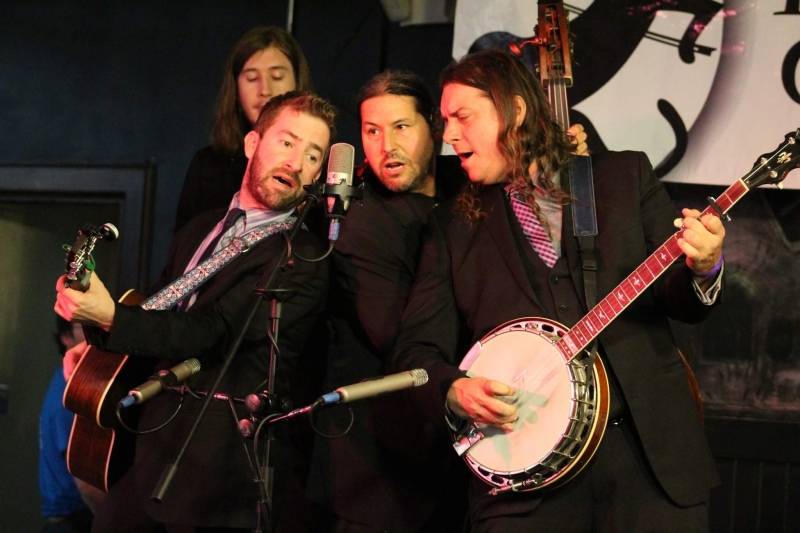
The quartet spoke of how they’ve traveled to over 25 countries, playing bluegrass and promoting their educational program called Bluegrass Ambassadors. They played a song that they had picked up in their travels – a traditional ballad that originated in Kenya. Using bluegrass instruments to pluck through an African song was weirdly charming, fitting, and — to my delight — caused a handful of people in the crowd to break out into a good ol’ fashion dance. I had seen these two people in the back of the room, quietly dancing with each other since the start of the show, but as the music progressed they made their way to the front of the room near the stage and while dancing there they were joined by two more and two more after that until the once personal dance of two people, quietly in the back of the room turned into a crowd of people dancing, laughing, clapping, and stomping their feet to the pumping rhythm of the music. I’m not sure if the dancing crowd all knew each other, it’s likely; but I like to think that they were just a group of strangers so overtaken by the music that they couldn’t help but dance.
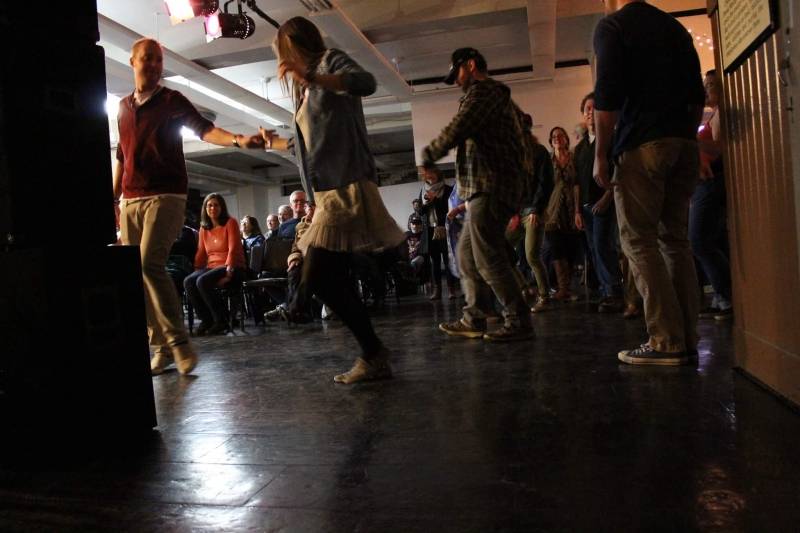
In the back of the room the Chicago Farmer, having finished his set earlier that night, stood watching the show. In the corner I could see some familiar faces from the Rebekah Songer show as well. Obviously this is the part where my literary foreshadowing finally pays off and we see that the C-U Folk & Roots Festival lives up to its mission of creating a sense of community — I couldn’t think of a more fitting image or a more fitting way to end the night than sitting there watching a crowd of strangers shed their inhibitions and dance like nobody was watching, swinging around, grabbing hands, and letting the music
All photos courtesy of Logan Green.








